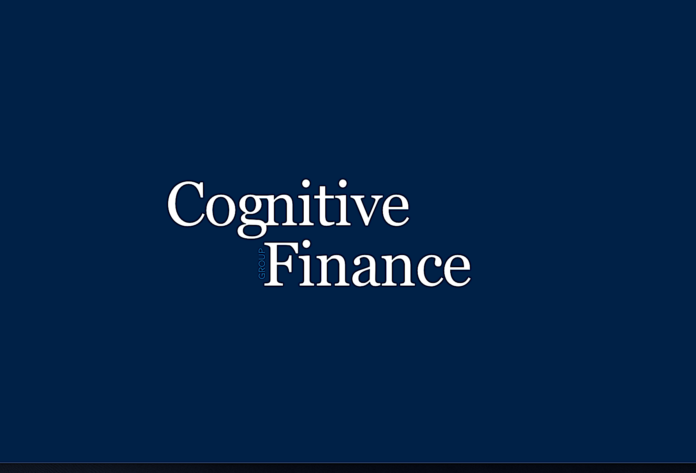AI has penetrated the very fiber of our daily lives and how we conduct business. It is everywhere, in every industry and application. The finance sector, too, has been impacted by AI in a big way. Leading financial institutions’ use of advanced AI technologies is steadily increasing. Nearly 60 percent of financial-services sector respondents in McKinsey’s Global AI Survey report that their companies have embedded at least one AI capability.
The world’s biggest financial firms are increasingly investing in artificial intelligence for data analysis, fraud detection and targeting, and many other applications of artificial intelligence in financial services. This makes it imperative for other financial services companies to hop on the bandwagon of AI-led transformation, or they’ll fall behind the competition soon.
The major reason behind the adoption of AI in Finance is the abundance of data available to financial institutions and the growing affordability of computing facilities. While for several financial services firms, the usage of AI is episodic and extremely focused on specific use cases, a significant number of banking and finance leaders are undertaking a comprehensive approach to deploying advanced AI and embedding it across the full lifecycle from the front- to the back-office.
Realizing the Potential of Artificial Intelligence in Finance
AI transforms key business functions with the ability to collect and analyze huge amounts of data and enables a deep understanding of the financial services customers need to deliver personalized services. This leads to better products and services for the end customer.
Cognitive Finance enables businesses to enhance their productivity, turnaround time, and overall profit with intelligent financial services. Their portfolio includes cognitive-led tools that facilitate increased customer interaction and more efficient information access management. Consequently, the success of financial services companies now rests upon their ability to harness data for creating personalized products and services by applying AI-backed solutions.
Common Uses and Applications of AI in Financial Services
Deploying AI in the financial services industry can maximize efficiency by reducing friction costs such as transaction execution fees and commissions. Artificial intelligence in financial services enables banks to safeguard customer accounts, increase ROI and provide personalized services and investment strategies to their customers. Furthermore, it enables easier capacity reallocation and effective spending, thus boosting transparency and decision-making for financial institutions.
The following are some use cases where AI has been most impactful within the BFSI industry.
1. Chatbot and Virtual Assistants
In Finance, chatbots are used primarily to answer questions, but they can now be used on social media or by email to open accounts and forward comments and complaints to apt customer service units. Such chatbots or virtual assistants use NLP or natural language processing to engage customers in conversations and provide 24*7 support.
2. Fraud Detection & Prevention
Before AI, banks used to rely on traditional AML or anti-money laundering systems to monitor transactions and names. This came with high chances of generating false positives. The alarming increase in online fraud and changing patterns required financial institutions to upgrade their security systems.
Courtesy of AI in Finance, enhanced components are now being added to fraud detection systems. Such systems can easily detect hidden transactional patterns and data anomalies. They are also adept at pointing out suspicious relationships between individuals and entities. Thus, BFSI can take a more proactive approach to prevent fraud and stop it before it happens, rather than being in a reactive mode and addressing it after the damages are done.
3. Predictive Analytics for Trend Forecasting
Revenue forecasting and stock price predictions continue to be core tools in the financial sector. The more data collected, the more accurate revenue forecasts and stock prices become. The advent of AI in Finance has also helped with this. The exponential increase in available data has been pivotal for the improved performance of predictive analytics models and led to a gradual decline in the level of human intervention required for prediction purposes.
4. Better CRM and CX Management
Banks and other financial firms increasingly use customer relationship management tools to provide 24/7, personalized services to their clients with facial recognition and voice commands for long-in. These are AI examples and help banks analyze customer behavioral patterns to perform segmentation and targeted marketing.
5. Credit Risk Management
As financial regulatory bodies continue to focus on risk management, more and more
financial institutions are required to develop better estimation models and solutions. One domain of development where AI is being successfully implemented is in credit risk management – it’s especially popular amongst Fintech firms and evident in digital banking.
Artificial Intelligence techniques unlock insights from data to inform investment strategies and enhance financial inclusion. Their ability to perform data-driven analysis of clients can help maximize the rejection of clients with high risks, minimize the rejection of creditworthy customers, and reduce losses suffered by financial institutions.
The factors mentioned above will constantly evolve, bringing new values and opportunities in AI to businesses in the BFSI industry. By being open to possibilities offered by AI, financial firms will be able to effectively exploit the advantages of this disruption, using it as a fundamental component in their digital transformation journey.


















